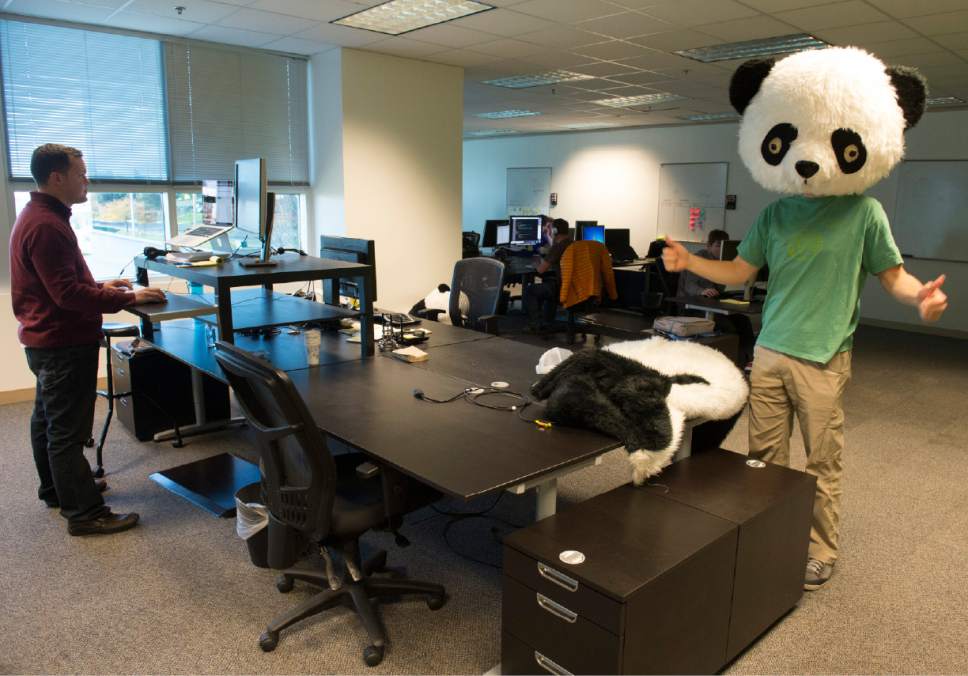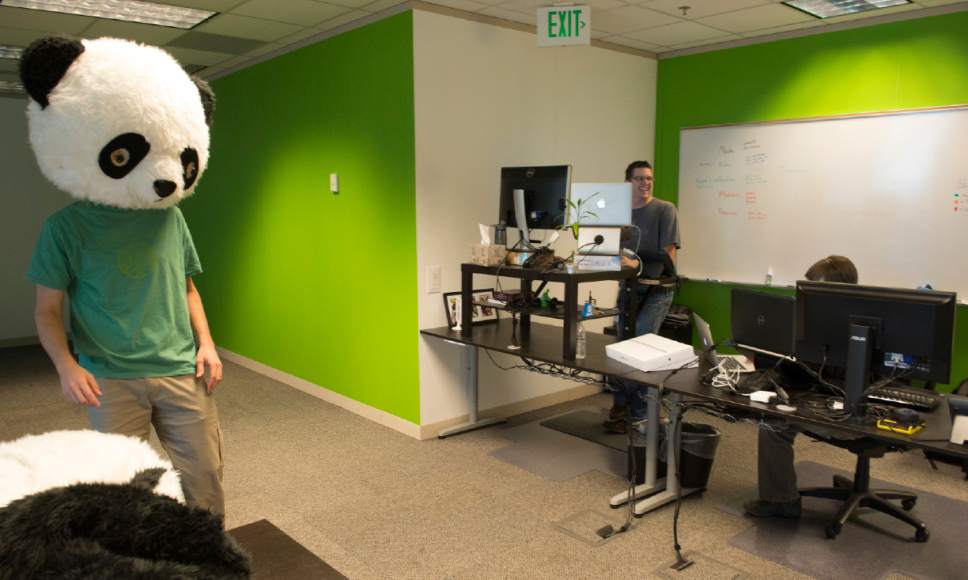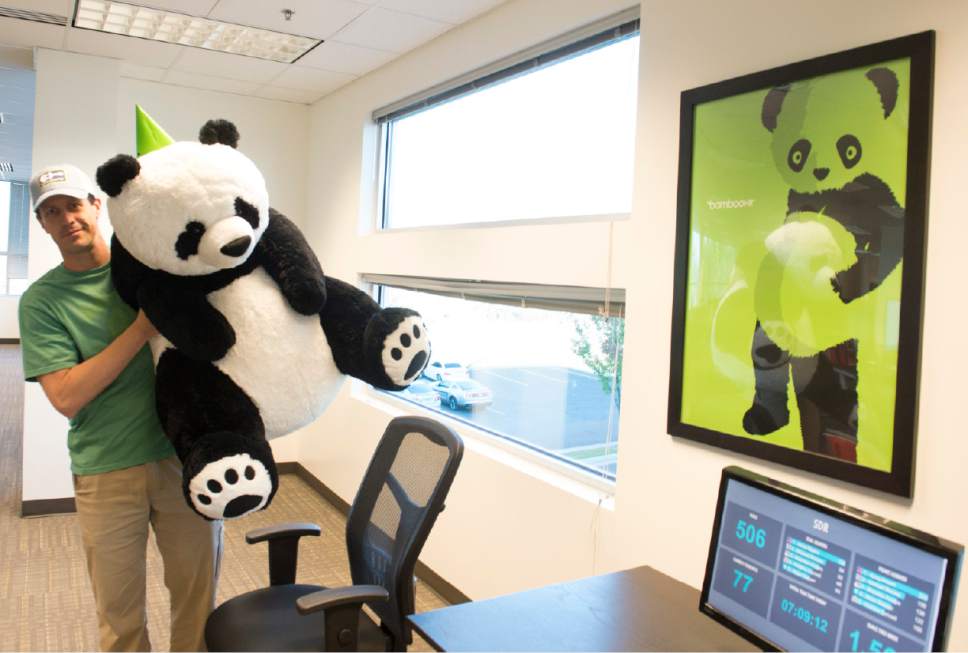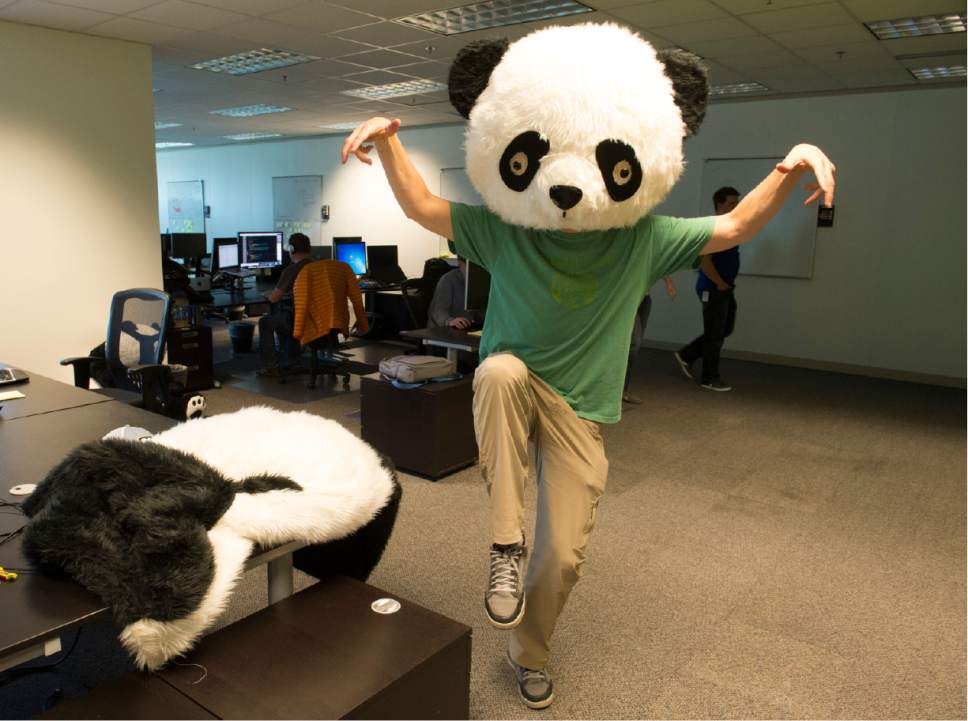This is an archived article that was published on sltrib.com in 2016, and information in the article may be outdated. It is provided only for personal research purposes and may not be reprinted.
Ben Peterson is CEO and co-founder of BambooHR, a human-resources-software company in Lindon.
The privately held firm, formed in 2008, has been ranked among Utah's top workplaces for employee satisfaction three years running by Pennsylvania-based WorkplaceDynamics.
What do you see as the most important steps employers can take to create happy, productive workplaces?
The simple answer is that employees should have a monopoly as our No. 1 priority. They always come first. People create value, not businesses, so focusing on the right inputs of employee engagement, satisfaction and performance will improve the output of growth.
It can be complicated. Providing the right work environment, culture and aligning people to mission, vision and goals is also critical. What we do know for certain is that people with a clear purpose, who have influence and are fulfilled working on challenging things, are happiest.
How do you recommend empowering employees so they feel able to communicate more freely and honestly with managers?
Be transparent yourself. Relentlessly ask for feedback and encourage openness. Admit fault, share goals, share intent, share thought behind difficult decisions, be consistent with feedback, recognize the right behaviors. It all starts with the leaders of the company. And this cannot be faked because employees can read through BS. People follow leaders because they love them, for being human, for being open. Trust matters and works both ways.
At BambooHR, we have an "oops" email where employees share the mistakes made, as well as why and what they did to fix it. When we first started it, we had to seed it a few times or ask people to write the oops email. One of my happiest days at BambooHR was when an employee, unprompted, sent an oops email. All now recognize that it's OK to make a mistake, and the importance of sharing it, so others don't make the same one.
What steps can help boost creativity?
First, define it. What does creativity mean at your company, how is it strategically helpful, and where and how does it happen? I think we assume what words mean to others and having a common definition is the first step. Then, apply that to the right things for the right reasons. I feel that creativity is most helpful and most successful when directed at the most important challenges and goals.
Another step would be to reward or recognize the creativity, letting people know the very specific reasons why.
What's your advice to employers who want a workplace that appeals simultaneously to millennials and older, more traditional workers?
It's not just about appealing to millennials and traditional workers, nor solely the key issues of other types of diversity. It's also the disruption of virtual workforces and teams, lack of leadership, talent and skills gaps, the shrinking half-life of knowledge. The question really is: How can we design a work environment that challenges, engages and fulfills our people? Then it will appeal to everyone. A major challenge is also the continued pace of disruption, which means culture is never done, but always a work in progress that is definitely a strategic imperative for all businesses.
Also, I'm a bit contrarian to some who feel that organizations should be designed to satisfy millennials. The reality is millennials do bring a demand for transparency and other new dynamics to the workforce. But many of these dynamics are good for everyone. So let's talk about all the good they bring, and let's communicate the "why" of not bringing the things that don't belong.
What are the benefits, as you see them, of infusing work communication and interactions with humor?
Humor is everywhere and naturally happens in the right work environment. People are HILARIOUS, and the best cultures invite us to be ourselves at work. The benefit is that work can be super-funny. Increased creativity, employee satisfaction, performance and more are results. We just need to be authentic about who we are and what we're trying to accomplish, and humor will be a natural part of work. Where humor doesn't exist, I would bet that toxic environments do.









